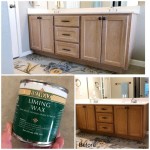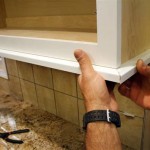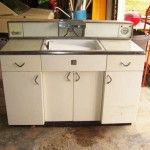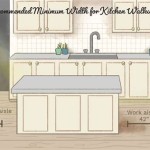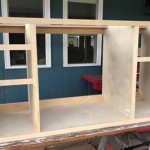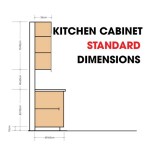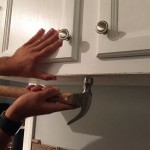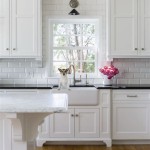Aluminum Kitchen Cabinets: Pros and Cons
Aluminum kitchen cabinets offer a modern and sleek aesthetic, increasingly popular in contemporary kitchen designs. Their unique properties contribute to both advantages and disadvantages homeowners should consider before making a purchase.
One of the most significant advantages of aluminum cabinets is their durability. Aluminum is inherently resistant to moisture, making it an excellent choice for kitchens prone to humidity and spills. Unlike wood, aluminum will not warp, rot, or swell due to water exposure, ensuring the cabinets maintain their structural integrity over time. This resistance also extends to pests like termites and other wood-boring insects, further enhancing their longevity.
Aluminum's inherent strength contributes to the cabinets' robust construction. They can withstand significant weight and impact without sustaining damage, making them a practical choice for busy kitchens. This strength also allows for slimmer frame designs, maximizing storage space without compromising stability.
From a maintenance perspective, aluminum cabinets are remarkably easy to care for. They can be cleaned with mild soap and water, and stubborn stains can be removed with non-abrasive cleaners. Unlike wood cabinets, which often require regular polishing or refinishing, aluminum cabinets maintain their appearance with minimal effort, simplifying kitchen upkeep.
The fire-resistant nature of aluminum is another significant benefit. Aluminum is non-combustible and will not contribute to the spread of flames in the event of a kitchen fire. This characteristic adds an important layer of safety to the home environment.
Aluminum's recyclability is an environmentally conscious choice. Aluminum can be recycled repeatedly without losing its properties, reducing the demand for new materials and minimizing the environmental impact of cabinet manufacturing. Choosing aluminum cabinets can contribute to a more sustainable kitchen design.
Beyond practicality, aluminum offers aesthetic versatility. It can be easily powder-coated in a wide range of colors and finishes, allowing for customization to match any kitchen design scheme. From sleek, modern matte finishes to vibrant, glossy hues, aluminum cabinets can achieve a variety of looks.
Despite the numerous advantages, aluminum kitchen cabinets also present some potential drawbacks. One notable factor is the cost. Aluminum cabinets are generally more expensive than those made from traditional materials like wood or laminate. The manufacturing process and the material itself contribute to the higher price point, which may be a limiting factor for some budgets.
While aluminum is resistant to many forms of damage, it can be susceptible to dents and scratches. Sharp objects or heavy impacts can mar the surface, potentially affecting the cabinets' aesthetic appeal. While minor scratches can often be buffed out, deeper dents may require professional repair.
The conductive nature of aluminum can also be a disadvantage. Aluminum readily conducts heat, which can make the cabinets warm to the touch if located near ovens or other heat sources. This can be a safety concern, especially in households with young children.
The modern and industrial aesthetic of aluminum cabinets, while appealing to many, may not complement all kitchen styles. In more traditional or rustic settings, the sleek appearance of aluminum can feel out of place. Careful consideration of the overall kitchen design is essential when choosing aluminum cabinetry.
Sound can be another consideration. Aluminum cabinets can be somewhat noisy, amplifying the sounds of dishes and cookware inside. This can be mitigated to some extent with soft-close hardware and careful organization of cabinet contents, but it remains a potential concern for those sensitive to noise.
Over time, aluminum can oxidize, leading to a dulling of the finish, especially in areas exposed to moisture or harsh cleaning agents. While this oxidation doesn't affect the structural integrity of the cabinets, it can impact their appearance. Regular cleaning and the use of appropriate cleaning products can help prevent oxidation and maintain the cabinets' shine.
The thermal conductivity of aluminum can also affect the storage of temperature-sensitive items. If located near a heat source, the cabinets may become too warm for storing certain foods or ingredients. Careful consideration of cabinet placement and the use of insulation can help mitigate this issue.
Finally, the installation of aluminum cabinets can be more complex than that of traditional materials. The lightweight nature of aluminum can make it more prone to warping during installation, requiring specialized tools and techniques. Hiring experienced professionals for installation is recommended to ensure proper fitting and prevent damage to the cabinets.

Why Aluminium Kitchen Cabinet Perfect For Malaysian

Aluminum Kitchen Cabinet Pros Cons A Star Furnishing

Aluminum Kitchen Cabinet Pros Cons A Star Furnishing

Aluminum Kitchen Cabinet Pros Cons A Star Furnishing

Aluminium Kitchen Cabinets Pros Cons And More Recommend My

Aluminium Kitchen Cabinet What You Should Know How Why

Aluminum Kitchen Cabinet Pros Cons A Star Furnishing

5 Pros Cons Of Aluminium Kitchen Cabinet

Aluminum Kitchen Cabinet Pros Cons A Star Furnishing

5 Pros Cons Of Aluminium Kitchen Cabinet
Related Posts

